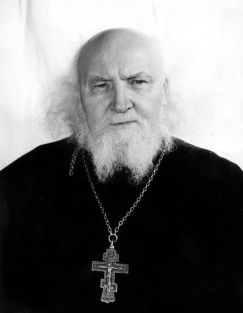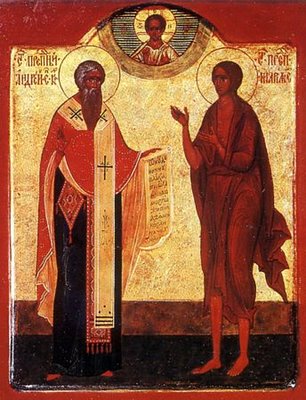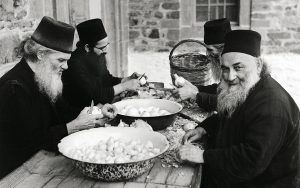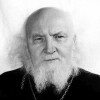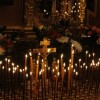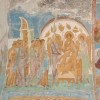“St. Mary’s Standing” (Mariino stoianie) is the Russian folk name for the Matins served on Thursday of the fifth week of Great Lent (commonly celebrated on Wednesday evening), at which the Great Canon of St. Andrew of Crete is read in its entirety along with the life of St. Mary of Egypt.
We have read the Penitential Canon of Andrew of Crete for the final time this Great Lent, and the holy words of repentance have fallen upon our souls: “Have mercy on me, O God, have mercy on me.” We have also heard these refrains: “Holy Father Andrew, pray unto God for us! Holy Mother Mary, pray unto God for us!”
Repentance – this is what we can be saved by. Whatever good deeds we may perform, if we boast of them we will turn into Pharisees, looking only at the external, while being like graves full of abomination internally. For we are not justified by deeds of the law, for no one is able to perform such deeds as would cover our evil deeds. Repentance – this is what is above all. It is through repentance that many have attained salvation.
The Church draws our attention to the life of St. Mary of Egypt. She who was once a great harlot became a great saint. Repentance requires of us such labors as our good deeds do not.
Only a few think that it is easy to repent. Repentance is incredibly hard work. Repentance does not consist in saying “I repent,” even if we invoke God’s help. It is in vain that some have deluded themselves into thinking that, having spoken our sins in Confession, that we do not need to do anything more. Naming sin is a good start, but enormous labor lies ahead. Without this labor our words will remain nothing but words.
But to speak this first word resolutely means a great deal. There will be much that is seductive along this path, but we need to remember this first word.
Mary of Egypt performed such prodigal deeds that it was later difficult to relate them to the ascetic Zosima. She thought that sin was a pleasure; it opened doors to her everywhere. She encountered her first obstacle when she wanted to go into the church during the feast day: a wave of people always carried her away, and she saw in this the commanding hand of God. She prayed to the Most Holy Theotokos, who helped her enter the church for the veneration of the Live-Giving Cross of the Lord. Having venerated it, she made the firm decision to break with sin and unhesitatingly went into the desert. She spent seventeen years in fornication and forty-seven in repentance. Whatever temptations she underwent, she overcame them all with God’s help.
God’s help is not what God will do for us, as popular rumor has it. God helps those who themselves act. When Mary of Egypt was overcome by temptation she fell to the ground and prayed. But what do we do in such cases?
Let us think about our prayer. Not only do we pray carelessly, but we also do not pray at all times, although we face no fewer temptations than Mary of Egypt did. The desert of our lives is fraught with such temptations as perhaps even the ancient ascetics did not see. But they need to be overcome.
The ascetics who went ahead of us on the path of repentance, thereby gaining experience, can help us. The first who can help us is St. Mary of Egypt. When she prayed, St. Zosima saw how she was raised above the ground. Her repentance gave power to her prayer. Repentance gives wings with which to soar above the earth. It is only through repentance that we can free ourselves from sin – and we have an abyss of sin.
Why does this abyss not horrify us? Because we do not see it. If we had seen this abyss, then how forcefully would we have cried out: “Have mercy on me, O God, have mercy on me!”
We are often slow to repent. Let us sin just a little bit more, and then we will repent. Such calculation is a deception. In the Great Canon we sing: “My soul, my soul, why sleepest thou? The end draweth near!” Our life is rapidly growing shorter and the end is very near. Repentance cannot be put off, for we might not have time.
Just as Mary of Egypt made up her mind and immediately swam across the Jordan, so do we, too, need to break with sin at once. This is how you are putting things off: “Just one more drop!” But what if this drop will be fatal?
Repentance leads us to resurrection. It is the fifth week of Great Lent, and soon it will be the Resurrection of Christ, Pascha. Pascha is not an earthly feast, it is a heavenly feast – and it is in heavenly fashion, through repentance, that we should prepare for it.
Let us now ask ourselves: with what sins have we broken this year?
Without liberating ourselves from sin we will not see Pascha, even if we reach it in earthly fashion.
Pascha is the liberation from sin; it is reconciliation with God and with one another.
Let us hasten to fill in this gap.
Have mercy on me, O God, have mercy on me! Holy Mother Mary, pray unto God for us! Amen.
Translated from the Russian.












